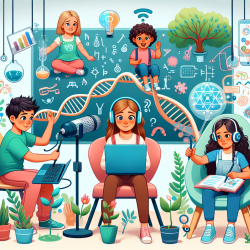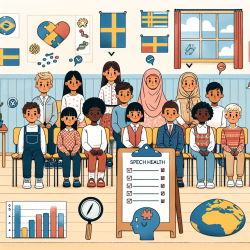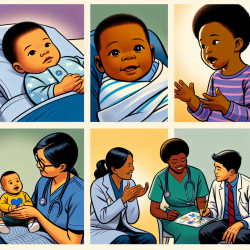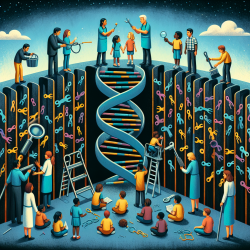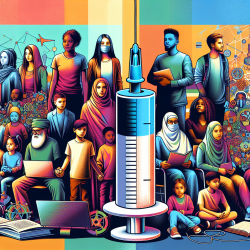Developmental Coordination Disorder (DCD) is a condition that affects motor coordination in children, often leading to difficulties in daily activities and academic performance. Despite its prevalence, awareness and knowledge about DCD among key stakeholders—caregivers, teachers, allied health professionals, and medical professionals—remain limited. A recent study titled Awareness and knowledge of developmental coordination disorder: A survey of caregivers, teachers, allied health professionals and medical professionals in Australia sheds light on this critical issue.
According to the study, which surveyed 494 participants across various stakeholder groups in Australia, DCD and related terms were among the least known childhood disorders. Approximately half of the participants were familiar with the term DCD, but most were more familiar with the term dyspraxia. Allied health professionals demonstrated greater knowledge of DCD's motor features, but all stakeholder groups showed poor recognition of the social and psychological effects of DCD.
Here are some key findings from the study:
- Only 53% of allied health professionals and 33% of medical professionals reported they had identified or diagnosed DCD.
- Less than 20% of these professionals felt that the DSM-5 contained adequate information to make a DCD diagnosis.
- Most teachers (82%) believed they should play a role in identifying early warning signs of DCD.
- 80% of teachers believed there are children in the school system labeled as lazy or defiant when they actually have motor skills impairments.
- Only 16% of primary caregivers were confident that a physician would provide an accurate and timely diagnosis of DCD.
These findings underscore the urgent need for improved familiarity and knowledge of DCD among all key stakeholders. As practitioners dedicated to creating great outcomes for children, it is crucial to implement the following strategies to enhance your skills and contribute to better diagnosis and management of DCD:
1. Educate Yourself and Others
Familiarize yourself with the features of DCD, including its motor, social, and psychological aspects. Use reputable sources such as the DSM-5, the International Clinical Practice Recommendations on DCD, and the DCD Advocacy Toolkit. Share this knowledge with colleagues, caregivers, and educators to foster a more informed community.
2. Advocate for Comprehensive Training
Encourage your institution or organization to provide comprehensive training on DCD for all staff members. This training should cover identification, diagnosis, and intervention strategies. Advocate for the inclusion of DCD education in professional development programs and curricula for allied health and medical professionals.
3. Collaborate with Other Stakeholders
Collaboration is key to effective management of DCD. Work closely with teachers, caregivers, and other healthcare providers to create a multidisciplinary approach to support children with DCD. Regular communication and information sharing can lead to more accurate diagnoses and better-tailored interventions.
4. Utilize Evidence-Based Interventions
Implement evidence-based interventions that have been proven effective in managing DCD. These may include occupational therapy, physical therapy, and specialized educational programs. Monitor the progress of children with DCD and adjust interventions as needed to ensure optimal outcomes.
5. Promote Awareness and Reduce Stigma
Raise awareness about DCD within your community and work to reduce the stigma associated with motor skills impairments. Educate parents, teachers, and peers about the challenges faced by children with DCD and the importance of early identification and intervention.
By implementing these strategies, practitioners can play a pivotal role in improving the diagnosis and management of DCD, ultimately leading to better long-term outcomes for affected children. Continued research and education are essential to further our understanding of this condition and to develop more effective interventions.
To read the original research paper, please follow this link: Awareness and knowledge of developmental coordination disorder: A survey of caregivers, teachers, allied health professionals and medical professionals in Australia.




